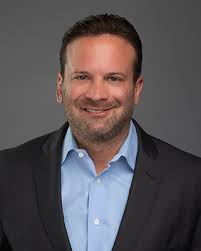29 Dec Lifestyle Choices the Protect Against Prostate Cancer By Dr. Dan Sperling

Dr. Sperling
By Dr. Dan Sperling M.D., D.A.B.R.
Medical Director and Chief of Interventional Uroradiology at the
Sperling Prostate Center in Florida
Medical Director of its parent practice, the Sperling Medical Group
If the name Dr. Dean Ornish rings a bell, it’s probably because over 30 years ago he became the poster boy for preventing heart disease through diet and exercise. His 1990 book, “Dr. Dean Ornish’s Program for Reversing Heart Disease,” made the NYTimes best seller list. To this day, when we think of Dr. Ornish, we think of a long and heart-healthy life.
Although we don’t link Dr. Ornish with prostate health, there’s good reason to do so—but most men don’t know it. In 2008, the National Academy of Sciences published research by Dr. Ornish and his team in an article titled “Changes in prostate gene expression in men undergoing an intensive nutrition and lifestyle intervention.” They broke new ground in our understanding of preventing prostate cancer (PCa).
Dr. Ornish and his team showed that a comprehensive lifestyle program they designed actually caused changes in gene regulation. They designed an experimental lifestyle protocol and tested is on 30 PCa patients; all 30 had been diagnosed with low-risk PCa and were on Active Surveillance (no other treatment). At the start of the 3-month study, each patient’s biopsy samples were used to profile his PCa gene activity. Then all participants adhered faithfully to the following protocol:
- A vegan (plant-based) diet (with 10% of calories from fat
- Physical activity (walking 30 minutes a day for 6 days a week)
- Stress reduction (yoga, progressive relaxation, breathing, meditation)
- Dietary supplements (vitamins C and E, soy, fish oil, selenium)
- A weekly support group to provide advice and sustain adherence to the program.
Study results
At the end of the 3-month period, the patients were again biopsied for genomic purposes. The team found that many disease-promoting disease, including not just cancer activity but also heart disease and inflammation, were down-regulated (“switched off”) while protective disease-preventing genes were up-regulated (“switched on”). In other words, healthy lifestyle choices can profoundly transform our bodies, right down to the level of the molecules in our very cells.
As a physician who specializes in PCa detection, diagnosis, and minimally invasive image-guided treatments, I am committed to ending prostate cancer—but even more, to preventing it altogether. Wouldn’t it be a great world if we could reduce the global cancer burden one patient at a time?
Dr. Ornish’s 2008 paper inspired me to continue tracking research on how wellness choices in diet, exercise, stress management, supplements, and healthy emotional support can reduce the risk of PCa. Here are few examples:
- Studies continue to suggest that the Mediterranean diet, with its reduced consumption of red meat and processed foods while increasing vegetables, legumes, whole grains and fruits offers high level protection against PCa.
- Intense exercise not only has a powerful preventive effect against PCa, it can extend survival for those with incurable PCa.
- Stress management techniques like yoga not only benefit PCa patients recovering from treatment and its side effects, but also have value for newly diagnosed patients. Recent research also suggests that men living with BPH (benign prostatic enlargement) or other noncancerous pelvic conditions may find yoga helpful for improving prostate health.
- Many PCa patients, or those at risk for PCa, turn to supplements or other forms of complementary and alternative medicine. In terms of research, the jury is out regarding the value of supplements, with most studies unable to confirm they have merit. However, there is universal agreement that a healthy, balanced diet meets all requirements for the diverse vitamins and minerals we need for healthy bodies. My only caution is to research the manufacturers and avoid hype (if it sounds too good to be true, it probably is). Use only products from reputable sources, and discuss your supplement use with your doctor.
- Social support, psychological wellness and emotional health are often overlooked or neglected during a PCa patient’s journey with his disease. In particular, anxiety can be detrimental not just during PCa, but it can have a harmful impact on general immunity and mental health. If you have PCa, it’s important to surround yourself with supportive, caring family and friends. Such support directly and indirectly impacts your physical and psychological defenses and healing.
To return to Dr. Ornish, he has shown us that there’s a correlation between heart health and prostate health. At our Center, we echo what an enormous amount of published research has shown: if it’s good for the heart, it’s good for the prostate—and vice versa. Our lifestyle choices can help or hurt our total health, whether it’s a small gland deep in the pelvis, or a powerful pumping muscle that circulates life-giving oxygen and nutrients throughout the body. Your prostate’s wholesomeness lies in the countless decisions you make each day. If you want to protect it against prostate cancer, choose wellness and choose well.
NOTE: This content is solely for purposes of information and does not substitute for diagnostic or medical advice. Talk to your doctor if you have health concerns or questions of a personal medical nature.
About the author:
Dr. Dan Sperling, an expert in MRI-based services for prostate cancer, is a licensed and board-certified radiologist. He is a member of the Society of Uroradiology and the American Society of Laser Medicine. Dr. Sperling completed several specialized residencies and fellowships. Since he opened his own practice in 2010, he has been a leader in image-based detection, diagnosis and treatment of prostate diseases including cancer.
Dr. Sperling is currently the Medical Director of the Sperling Prostate Center in Delray Beach, FL
The information on MedicalResearch.com is provided for educational purposes only, and is in no way intended to diagnose, cure, or treat any medical or other condition.
Some links are sponsored. Products and services are not warranted or endorsed.
Always seek the advice of your physician or other qualified health and ask your doctor any questions you may have regarding a medical condition. In addition to all other limitations and disclaimers in this agreement, service provider and its third- party providers disclaim any liability or loss in connection with the content provided on this website.
Last Updated on December 29, 2024 by Marie Benz MD FAAD
8



